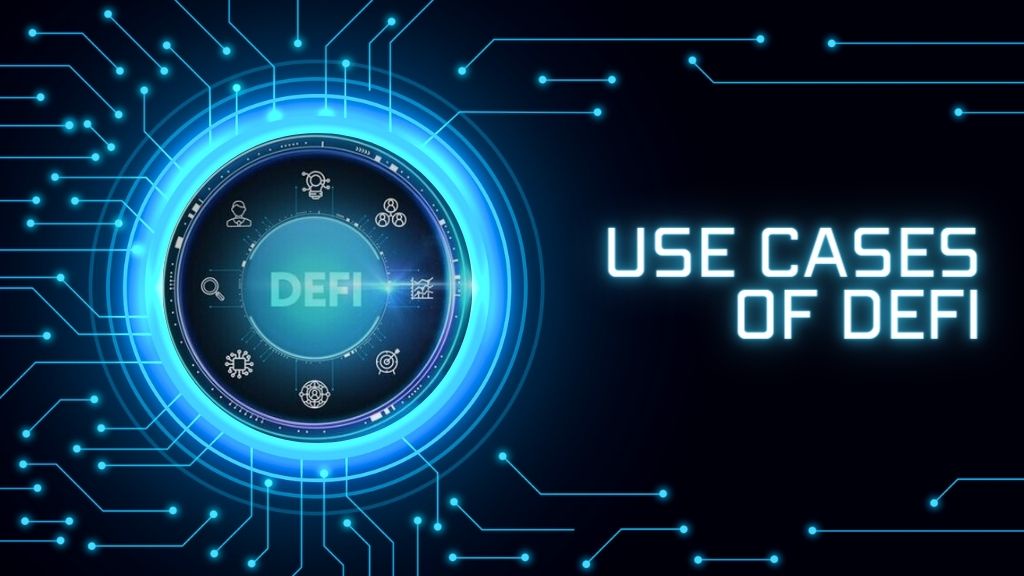In recent years, the world of decentralized finance (DeFi) has emerged as a revolutionary force, offering innovative solutions to traditional financial services. For startups, embracing DeFi opens up a plethora of opportunities to streamline operations, access funding, and create value for their stakeholders. In this article, we'll delve into various use cases of DeFi for startups and explore how these technologies can drive growth, efficiency, and sustainability.
Introduction to DeFi
Before we delve into specific use cases, let's briefly understand what decentralized finance (DeFi) entails. DeFi refers to a set of financial services and applications built on blockchain technology, aiming to democratize access to financial tools, eliminate intermediaries, and increase transparency and security.
Key Characteristics of DeFi:
- Decentralization: DeFi operates on decentralized networks, removing the need for intermediaries like banks or financial institutions.
- Transparency: All transactions on DeFi platforms are recorded on a public blockchain, ensuring transparency and auditability.
- Interoperability: DeFi protocols are often interoperable, allowing users to seamlessly interact with various applications and services.
- Permissionless: DeFi platforms typically have no barriers to entry, enabling anyone with an internet connection to participate.
Now, let's explore some compelling use cases of DeFi for startups:
1. Access to Capital
One of the most significant challenges for startups is accessing capital, especially in the early stages of development. DeFi platforms offer innovative solutions such as decentralized lending and crowdfunding, allowing startups to raise funds without relying on traditional financial institutions.
Example: Decentralized Lending Platforms
Startups can leverage decentralized lending platforms to borrow funds by using their digital assets as collateral. This eliminates the need for extensive paperwork and credit checks, providing quick access to capital at competitive interest rates.
2. Tokenization of Assets
Tokenization involves converting real-world assets into digital tokens on a blockchain. Startups can tokenize their assets, such as intellectual property, equity, or real estate, to increase liquidity, fractionalize ownership, and enable global trading.
Example: Equity Crowdfunding on Blockchain
Startups can issue security tokens representing ownership in their company and offer them to investors through blockchain-based crowdfunding platforms. This allows for greater inclusivity, lower transaction costs, and enhanced liquidity compared to traditional equity markets.
3. Decentralized Exchanges (DEXs)
Decentralized exchanges enable peer-to-peer trading of digital assets without the need for intermediaries. Startups can list their tokens on DEXs to facilitate liquidity and trading among investors and users.
Example: Listing Utility Tokens
Startups can list utility tokens used within their ecosystem on decentralized exchanges, allowing users to buy, sell, and trade these tokens freely. This fosters community engagement, incentivizes participation, and enhances the utility of the startup's platform.
4. Automated Market Making (AMM)
Automated market making protocols enable liquidity provision and price discovery through algorithmic trading. Startups can use AMM protocols to bootstrap liquidity for their tokens and incentivize market participants to trade on their platforms.
Example: Liquidity Mining Incentives
Startups can incentivize liquidity provision by offering rewards to users who contribute liquidity to their AMM pools. This attracts liquidity providers, enhances market depth, and improves price stability for the startup's tokens.
5. Decentralized Identity and Reputation Systems
Decentralized identity and reputation systems enable startups to verify users' identities, credentials, and transaction history without relying on centralized authorities. This enhances trust, security, and interoperability across different applications and platforms.
Example: KYC/AML Compliance
Startups can implement decentralized identity solutions to streamline Know Your Customer (KYC) and Anti-Money Laundering (AML) compliance processes. Users can maintain control over their personal data while startups ensure regulatory compliance and mitigate fraud risks.
Conclusion
DeFi offers startups a wide range of opportunities to innovate, collaborate, and disrupt traditional financial services. By embracing decentralized finance, startups can access capital, tokenize assets, facilitate peer-to-peer trading, automate market making, and enhance identity and reputation systems. As the DeFi ecosystem continues to evolve, startups must stay abreast of new developments and leverage these technologies to drive growth, efficiency, and sustainability in their ventures.
In conclusion, the use cases of DeFi for startups are diverse and promising, offering transformative solutions to age-old problems in the financial industry. By embracing decentralized finance, startups can unlock new avenues for innovation, collaboration, and growth, paving the way for a more inclusive and transparent financial ecosystem.


No comments yet